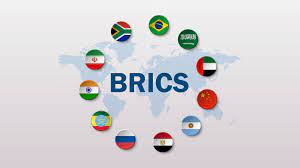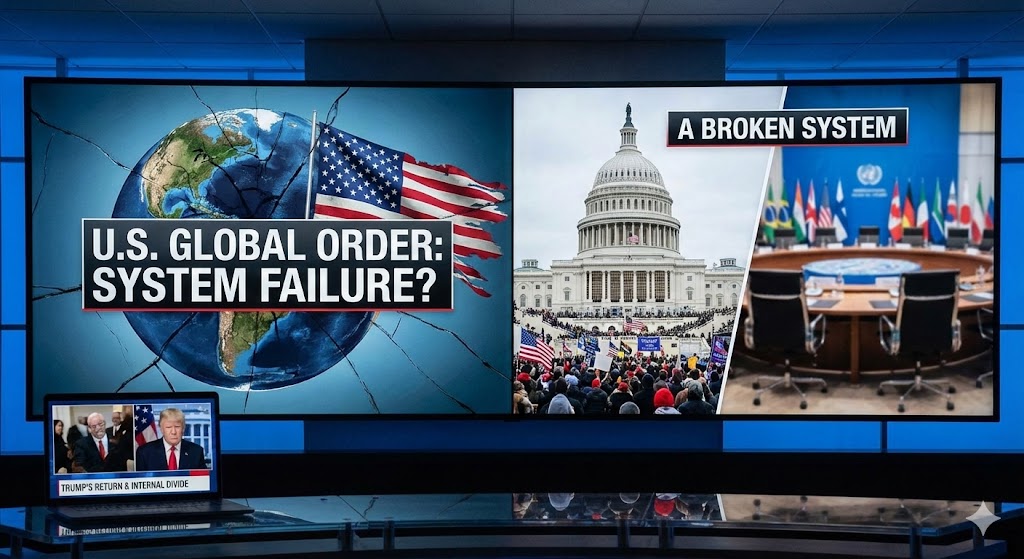Introduction
BRICS is an acronym for an association of major emerging economies: Brazil, Russia, India, China, and South Africa. Recently, the group has expanded to include Saudi Arabia, the UAE, Iran, Malaysia, Egypt, and Ethiopia, reflecting its growing influence. This expansion marks a significant shift in the group’s dynamics, broadening its economic and geopolitical reach.

Members of BRICS
- Brazil: As the largest country in South America, Brazil brings substantial natural resources and a growing economy to BRICS.
- Russia: A major global power with vast energy resources, Russia plays a crucial role in the political and strategic dimensions of BRICS.
- India: With a massive population and a rapidly growing economy, India is a pivotal member contributing to technological and service sector advancements.
- China: The world’s second-largest economy, China is a central force in BRICS, driving many of its economic initiatives.
- South Africa: The gateway to Africa, South Africa joined BRICS in 2010, adding a crucial geographical and economic dimension to the group.
- Saudi Arabia: An influential oil producer, Saudi Arabia’s inclusion adds significant energy leverage.
- United Arab Emirates (UAE): The UAE brings substantial financial resources and strategic geopolitical positioning.
- Iran: With vast energy resources and strategic location, Iran’s membership enhances the group’s geopolitical influence.
- Malaysia: Malaysia contributes with its robust economy and strategic location in Southeast Asia.
- Egypt: As a key African nation, Egypt adds historical and strategic depth to the group.
- Ethiopia: Ethiopia, as one of the fastest-growing economies in Africa, adds to the group’s developmental diversity.
Mission and Vision
Mission
The mission of BRICS is to promote peace, security, and development in a multi-polar world. The group aims to reform international financial and economic institutions to better represent the interests of emerging and developing economies.
Vision
BRICS envisions a fairer, more equitable global order. The group seeks to enhance cooperation among member states across various sectors, including economy, technology, and politics. The vision includes advocating for sustainable development and fostering inclusive growth.
Achievements and Initiatives
- New Development Bank (NDB): Established in 2014, the NDB aims to finance infrastructure and sustainable development projects in BRICS and other emerging economies.
- Contingent Reserve Arrangement (CRA): This initiative provides financial support to members during balance of payments crises.
- BRICS Summits: Annual summits facilitate dialogue on critical global issues, fostering collaboration and coordination among member states.
BRICS Currency: A New Financial Order?
There have been discussions within BRICS about creating a common currency to reduce dependence on the US dollar. The idea is to facilitate smoother trade and investment flows among member states and shield their economies from dollar volatility. However, establishing a BRICS currency faces significant challenges, including economic disparity among members and the need for robust financial and regulatory frameworks.
Impact on Global Politics
BRICS has the potential to reshape global politics by challenging the dominance of Western institutions like the International Monetary Fund (IMF) and the World Bank. The group’s emphasis on multipolarity promotes a more balanced global power structure.
- Counterbalance to Western Influence: BRICS presents an alternative to Western-led economic and political systems, promoting sovereignty and self-reliance among developing nations.
- Geopolitical Stability: By fostering cooperation among major regional powers, BRICS contributes to geopolitical stability and conflict resolution.
Future Prospects
- Economic Integration: Increased economic integration among BRICS members could lead to significant trade and investment opportunities, bolstering collective growth.
- Technological Collaboration: Joint efforts in technology and innovation can drive advancements in critical sectors like healthcare, infrastructure, and the digital economy.
- Environmental Sustainability: BRICS can play a pivotal role in addressing global environmental challenges through coordinated policies and sustainable practices.
Challenges and Criticisms
- Internal Disparities: The economic and political diversity among BRICS members poses challenges to unified decision-making and policy implementation.
- Global Perception: The group’s effectiveness is often questioned, with critics arguing that it lacks a cohesive strategy and tangible outcomes.
- Geopolitical Tensions: Bilateral tensions, especially between China and India, can hinder the group’s collaborative efforts.
Alternative to the UNO?
While BRICS is not an alternative to the United Nations, it seeks to complement and reform international institutions to better represent the interests of emerging economies. The group’s initiatives aim to democratize global governance structures and ensure more inclusive decision-making processes.
Conclusion
BRICS represents a significant shift towards a more multipolar world order. Its mission to promote equitable development and reform international institutions aligns with the aspirations of many developing nations. While challenges remain, the group’s initiatives in finance, technology, and sustainability position it as a key player in shaping the future of global politics and economics. As BRICS continues to evolve, its impact on the international stage will likely grow, potentially heralding a new era of global cooperation and development.









